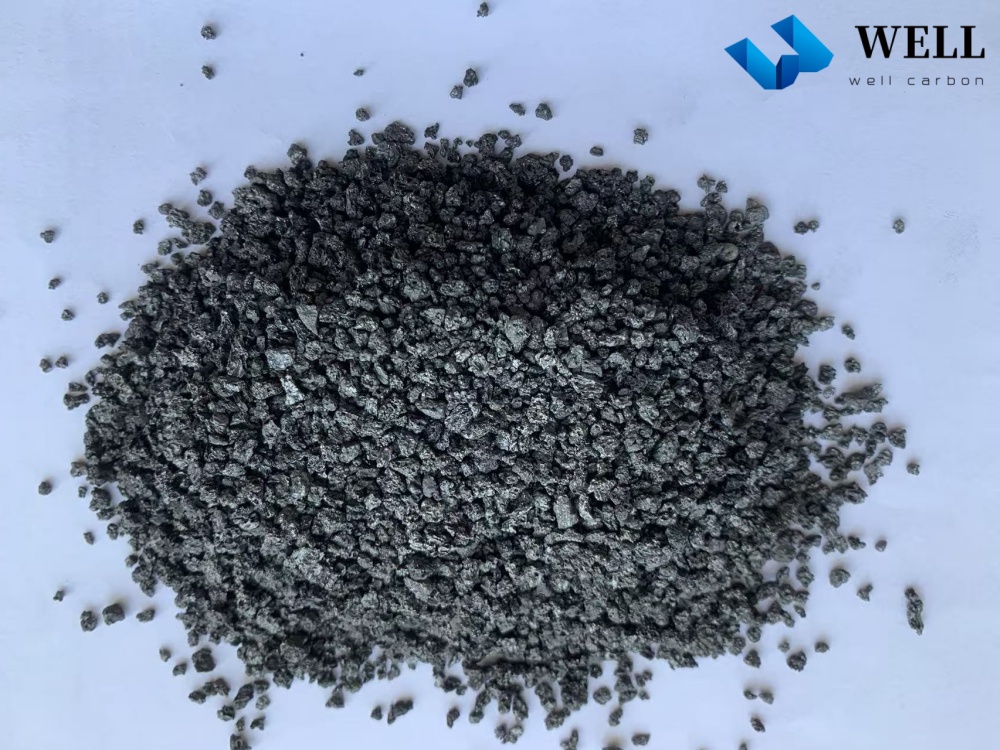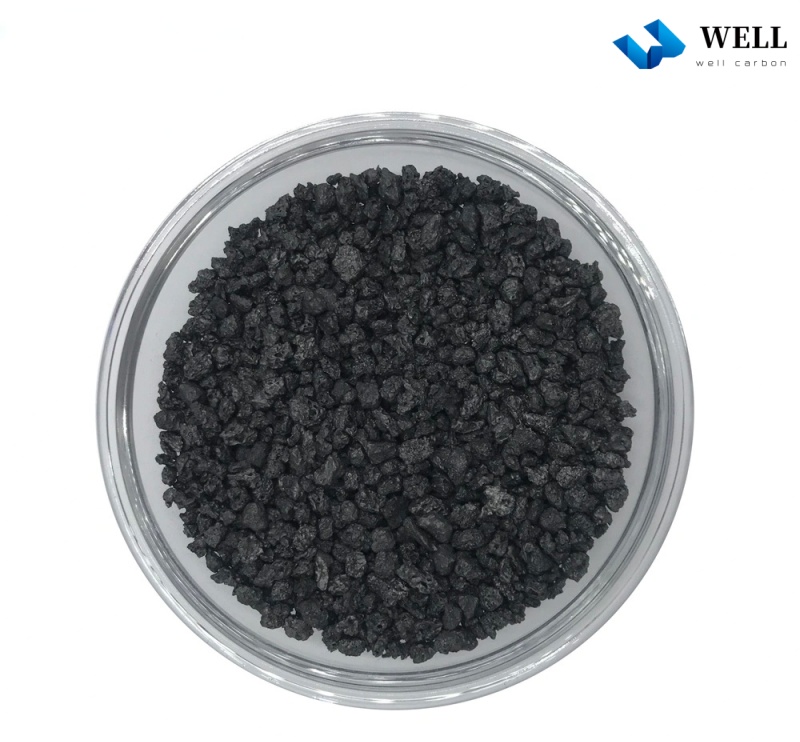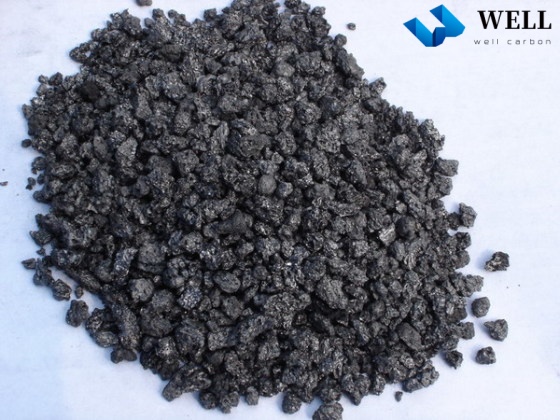
This week (August 25, 2025), the domestic calcined coke market continued to be stable
Prices for raw low-sulfur coke remained generally stable, with some prices decreasing by 100 RMB/ton. Prices for medium- and high-sulfur petroleum coke fluctuated narrowly. Calcined coke companies experienced good demand this week, with relatively little overall shipping pressure. Some companies continued to see price increases.
Regarding low-sulfur calcined coke: Raw material prices for low-sulfur calcined coke remained stable this week. Downstream companies, constrained by end-user demand, slowed their purchases of low-sulfur calcined coke, resulting in relatively stable overall prices.
Regarding medium- and high-sulfur calcined coke: Trading in the medium- and high-sulfur calcined coke market was relatively good this week, with most companies preparing to pre-sell orders for next month. Low inventory levels and cost pressures have led companies to be more willing to raise prices for new orders. Prices for benchmark calcined coke have increased by 50-100 RMB/ton, while prices for standard calcined coke have increased by 20-50 RMB/ton.
As of August 25, the average market price of low-sulfur calcined coke was 5,150 yuan/ton, up 50 yuan/ton (0.98%) from the same period last week. The average market price of 3.0% sulfur standard calcined coke was 2,400 yuan/ton, up 100 yuan/ton (4.35%) from the same period last week. The average market price of 3.0% sulfur, vanadium <400 ppm calcined coke was 3,300 yuan/ton, up 100 yuan/ton (3.13%) from the same period last week. The average market price of 3.5% sulfur standard calcined coke was 2,300 yuan/ton, up 100 yuan/ton (4.55%) from the same period last week. The average market price of 3.5% sulfur, vanadium <400 ppm calcined coke was 3,200 yuan/ton, up 100 yuan/ton (3.23%) from the same period last week.

This week, the low-sulfur calcined coke market was trading weakly and steadily, the price of raw low-sulfur coke was temporarily stable, the downstream demand side increased only slightly, the downstream purchasing enthusiasm was not high, the overall low-sulfur calcined coke shipment speed slowed down, and there was a lack of motivation for price adjustment.
A detailed look at this week's market:
On the supply side, the supply of low-sulfur calcined coke remained stable compared to last week. Downstream demand was characterized by a wait-and-see attitude, with companies slowing shipments. To mitigate the risk of inventory accumulation, most companies were aligning production with sales and maintaining current production volumes. Companies that had previously planned to increase production were more cautious in scheduling.
On the demand side, the graphite electrode market performed generally well this week, with overall electrode industry operating rates remaining low. Low-sulfur calcined coke prices remained stable, and electrode raw material purchases were primarily focused on meeting basic needs. Overall demand remained relatively unchanged compared to last week.
There was no significant fluctuation in the price of cathode carbon blocks this week. Supported by rigid demand, cathode carbon block companies had good order volumes, inventories remained at a reasonable and low level, and demand for low-sulfur calcined coke was stable.
In terms of market conditions, it is understood that this week's low-sulfur calcined coke market is mainly driven by the execution of previous orders. The supply and demand sides of the market are operating smoothly. The low-sulfur calcined coke market is in sufficient supply. Downstream companies mainly purchase to meet production needs. The overall low-sulfur calcined coke order price has not fluctuated much compared to last week.
As of this week (August 25th), the mainstream market price for low-sulfur calcined coke (based on petroleum coke from Jinxi and Jinzhou) is 4,900-5,200 yuan/ton.
The mainstream ex-factory price for low-sulfur calcined coke (based on petroleum coke from Fushun) is 6,100-6,200 yuan/ton.
The mainstream market price for low-sulfur calcined coke (based on petroleum coke from Liaohe and Binzhou Zhonghai) is 4,450-5,300 yuan/ton.

This week, the market for medium- and high-sulfur calcined coke saw active shipments, with the focus on fulfilling orders for target-grade calcined coke. Low on-site inventory coupled with initial cost pressures led some companies to negotiate a price increase of 50-100 RMB/ton for new orders. General-grade calcined coke also sold well, with some companies starting to pre-sell orders for next month, raising prices by 20-50 RMB/ton.
This week's market details,
On the supply side, overall supply of medium- and high-sulfur calcined coke remained relatively stable this week compared to last week.
A Shandong company continued to export its supporting production capacity, increasing its monthly supply of general-purpose calcined coke by approximately 2,000 tons.
Affected by the September 3rd military parade, some enterprises in Hebei Province reduced their production load to 50% from August 20th to September 4th. Some enterprises reduced emissions on their own initiative. Some enterprises in Shandong Province received news that they would adjust production according to weather warnings. Some areas required National VI automobile transportation and strictly controlled emission standards, so the impact on production was relatively small.
Most areas in Henan Province also require National VI trucks for transportation. Some companies may subsequently reduce production according to weather conditions. In addition, a company in Inner Mongolia with 300,000 tons of supporting production capacity is expected to produce coke in the near future. A company in Shandong Province plans to ignite its calcined coke production capacity on August 28, with an initial estimate of an increase of 5,000-8,000 tons in monthly production.
In terms of demand, the downstream demand for medium and high sulfur calcined coke continued to be stable this week.
In terms of aluminum use, electrolytic aluminum production remained stable this week. Calcined coke, which requires trace elements for aluminum, mostly fulfilled long-term orders. Prebaked anode production was less affected by the military parade, and overall demand for calcined coke for aluminum was good.
The negative electrode material market continued to operate steadily this week, with the transaction center of gravity remaining low. The price of negative electrode graphitization remained stable compared with last week. The purchasing mentality for medium- and high-sulfur general-purpose calcined coke was cautious, with purchases mostly made of high-sulfur general-purpose calcined coke at low prices.
In terms of market conditions, the overall trading volume of medium- and high-sulfur calcined coke was good this week. Inventories of most companies in the market maintained reasonable levels, and new orders were in good condition. To ease cost pressure and improve profitability, most companies held prices for shipments, and there was an intention to raise quotations for new orders. Some companies have already issued bidding prices for September orders, which are 200 yuan/ton higher than this month.
As of this week (August 25th),
the mainstream ex-factory transaction price for calcined coke with a sulfur content of 3.0% and no trace element requirements was around 2,400 yuan/ton;
the mainstream ex-factory transaction price for calcined coke with a sulfur content of 3.5% and no trace element requirements was around 2,300 yuan/ton;
the mainstream ex-factory transaction price for medium-sulfur calcined coke with a sulfur content of 3.0% and a vanadium content requirement of 600 parts per million (PPM) or less, and no other trace element requirements was 2,680-2,800 yuan/ton;
the mainstream ex-factory transaction price for medium-sulfur calcined coke with a sulfur content of 3.0% and a vanadium content requirement of 500 parts per million (PPM) or less, and no other trace element requirements was 3,000-3,100 yuan/ton;
the mainstream ex-factory transaction price for medium-sulfur calcined coke with a sulfur content of 3.0% and a vanadium content requirement of 400 parts per million (PPM) or less, and no other trace element requirements was 3,200-3,350 yuan/ton.
